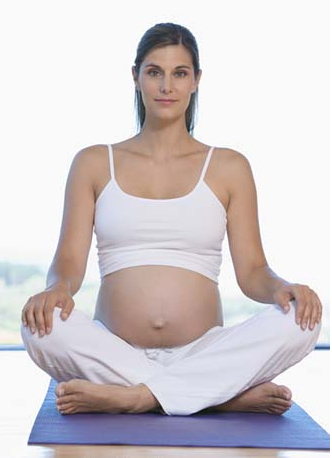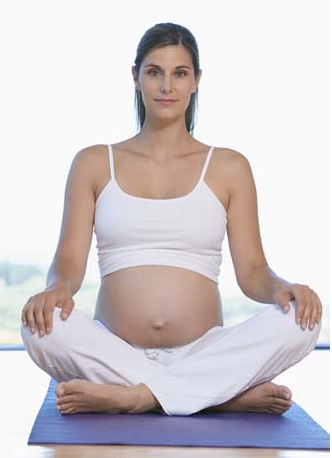Exercising Safely During Pregnancy


Before starting any exercise program, especially while pregnant, please make sure you consult your GP or Obstetrician, to ensure you are OK to exercise. If you are having a pretty straight forward pregnancy with no complications, you should be OK to do low impact/gentle exercise throughout your pregnancy, however please check with your specialist first.
The most important thing to do when exercising while pregnant is to listen to your body. If you are feeling tired, exhausted, nauseous, light headed etc, don’t exercise. REST. If you feel any of these symptoms while exercises, take a break, slow down and stop.
Make sure you:
- Wear comfortable clothing
- Wear a supportive bra, wear 2 or 3 if you need too, protect your assets.
- Make sure you stay hydrated, drinking small sips of water often during the workout and of course after exercising
- Don’t overheat your body, stay cool. It’s best not to exercise outside on hot days, or do it early in the morning when its cooler (practice getting up early now!)
- Can hold a conversation with someone throughout the workout, to ensure you aren’t pushing yourself too hard and getting too out of breath
Exercising while pregnant can offer loads of benefits, both physically, emotionally & mentally:
- You will have more energy
- May help manage some symptoms of pregnancy
- Improved posture
- Weight control
- Stress relief
- Improved sleep
- Great preparation for the physical demands of labour
- Faster recuperation after labour
- Faster return to pre-pregnancy fitness and weight
- Increased ability to cope with the physical demands of motherhood
- Just getting some fresh air is also really beneficial
There are a few things that happen to your body during pregnancy which can affect how you exercise, that you need to be aware of
- When pregnant, the hormone relaxin loosens your ligaments, which could increase the risk of joint injuries, so be careful not to over stretch and that is why its better to stick closer to the ground and one reason to avoid higher impact activities
- When you progress through your pregnancy, your body’s centre of gravity moves, which can alter balance and co-ordination. So take extra care on things where you need to balance.
- When you are pregnant, your resting heart rate increases, so rather than using a heart rate monitor, another method to work out the intensity of your workout is use the Rate of Perceived Exertion (RPE). You want to be able to have a conversion with someone, you don’t want to be too red in the face, and you don’t want to push yourself as hard as you would if you weren’t pregnant.
- In the second trimester, your blood pressure drops, so it is important to avoid rapid changes of position – from lying to standing, and vice versa – so as not to experience dizzy spells.
There are a number of activities you can do while pregnant. They include:
- Pelvic Floors are SO important before, during and after pregnancy
- Pregnancy friendly classes (Eg Blue Sky Health & Fitness classes are suitable for pregnant mums), make sure they are pre/post natal qualified.
- Walking
- Swimming
- Pregnancy Yoga – make sure they are pre/post natal qualified.
- Pregnancy Pilates – make sure they are pre/post natal qualified.
- Water aerobics
- Stationery bike – outdoor bikes should be OK before 5 months – but that will depend on your balance and you might find it uncomfortable sitting on the seat for any length of time, so listen to your body
- Running – some pregnant women find running ok, especially if they did a lot of running before falling pregnant, this is the same with weight training. But again, listen to your body and consult a professional if you have any questions, especially in relation to strength/weight training.
There are a few things to avoid while pregnant, such as:
- Contact sports or activities where you are more likely to fall over or get hit in the stomach
- Be careful lifting any weights over your head, especially if you tend to get light headed or dizzy.
- After about 14 weeks, it is not recommended to do any exercises on your back. The weight of the baby can slow the return of blood to your heart.
- Abdominal exercises – crunches, sit ups etc can be ineffective during pregnancy and may make the condition known as diastasis recti abdominis (a painless splitting of the abdominal muscle at the midline) worse.
- I would also minimise any high impact/jumping exercises. Instead keep them low impact
Amanda is a mum to 18 month old Chelsea, a Personal Trainer and owns her own Women’s Only Outdoor Fitness Business, Blue Sky Health & Fitness, based in Melbourne. Blue Sky Fitness offers Women of all ages, sizes and abilities a supportive & friendly environment in which to get fit, get healthy & be happy (but it’s also challenging!) Amanda has recently launched a Healthy Lifestyle eBook Series to help women all over the country lose weight, tone up & feel great about themselves. For more information on Blue Sky Health & Fitness, please visit www.blueskyfitness.com.au










